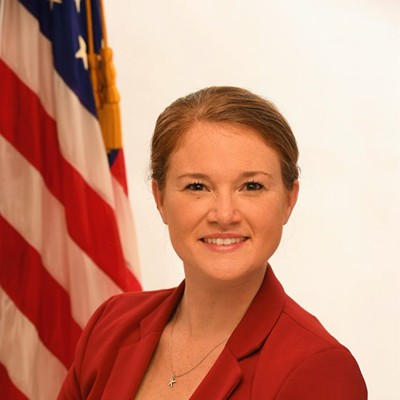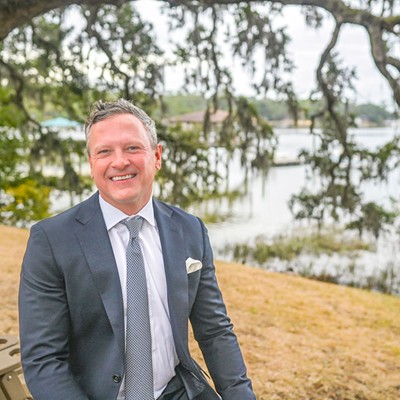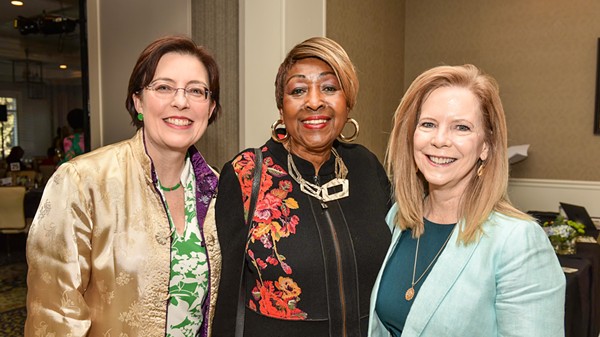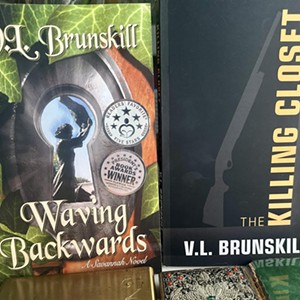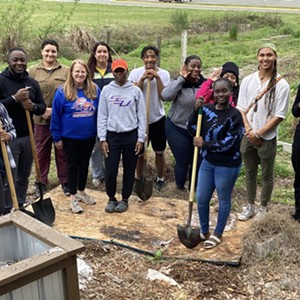“GO PLAY IN THE STREET,” an idiom similar to “Go jump in a lake,” isn’t generally regarded as a helpful suggestion, but that’s changing. In fact, “go play in the street” could even be construed as healthful advice in Savannah next year.
At a press conference in Forsyth Park Nov. 14, city officials and public health advocates announced Savannah is one of ten cities in the United States selected to receive $50,000 grants to plan and produce a series of “Play Streets” events in 2013.
During these events, streets will be closed to motor vehicle traffic so people can participate in events centered on physical activities and healthy lifestyles. The grant was awarded by the Blue Cross Blue Shield Association and the Partnership for a Healthier America.
“We need to encourage our young people to get out, get healthy, and play, and that’s what a Play Street is intended to do,” Mayor Edna Jackson said. “You will be proud of what we are going to do with these funds. It’s going to be fun.”
Among the other cities that received grants are Buffalo, Chicago, Minneapolis, New Orleans and San Francisco. The City of Savannah’s Garrison Marr spearheaded the application, a collaborative effort among a brigade of Savannah non–profits. Local groups that will collaborate on the Play Streets festivals include the Savannah Bicycle Campaign, Healthy Savannah and West Broad St. YMCA.
Similar events across the country and around the world have proved popular not just with people who enjoy the freedom and fun of taking to streets devoid of cars and trucks, but also with local businesses that appreciate the economic benefits.
The four local events are a Chalk Sports Cyclovia in April, a Bicycle Block Party in May, a Skate and Shake in September and a Fall Festival.
The word “Cyclovia” may be unfamiliar and is worth explaining. The concept originated in Bogot , Columbia where miles of streets are closed to cars on Sundays to accommodate cyclists, runners, walkers, skaters, street performers, and food and merchandise vendors. Since the late 1970s, Cyclovias have spread around the world, often incorporating unique aspects of local culture and customs.
The concept of temporarily changing miles of city streets into public spaces by prohibiting car traffic may initially seem like a new idea, but it harks back to older ways of using our streets. In his book Fighting Traffic: Dawn of the Motor Age in the American City, Peter Norton of the University of Virginia explains that, “Until the 1920s, under the prevailing conception of the street, cars were at best uninvited guests. To many they were unruly intruders. They obstructed and endangered street uses of long–standing legitimacy.”
Those long–standing legitimate uses of streets included serving as places for children to play, adults to converse, businesses to reach customers and people of all ages to engage in the daily social transactions in civic life. Play Streets will reclaim streets and return them to other purposes.
The events can also change the way we think about our streets, their uses and their value to our community. If we consider them as assets that can be employed to promote economic development, improve public health and reach other community goals – and not just conduits for moving cars – we can identify other ways to get the most out of our streets.
While such a shift in perceptions might seem unlikely, it’s important to note that it took an orchestrated campaign to promote driving as the primary use of city streets. In fact, as Norton points out, the definition of jaywalking was expanded and changed by automobile dealers and others interested in promoting cars.
The goal was to vilify pedestrians and recast previously acceptable behaviors as dangerous. It worked. Today people may be surprised by Norton’s revelation that jaywalker originally referred to a bumpkin who got in the way of other pedestrians.
Play Streets and similar events have opened minds and modified behaviors in other cities where they have been held, even after streets are reopened to cars. The Downtown Tucson Partnership website explains:
“Cyclovia was a game changer for Tucson,” said Tom Thivener, Tucson’s Bicycle & Pedestrian Program Manager. “All of a sudden folks are getting their bicycles out of the garage and dusting them off for the event. Cyclovia allows Tucsonans to get the feel of how fun it is to ride a bike again and after the event is over many folks ride the rest of the year.”
For more info visit ahealthieramerica.org



